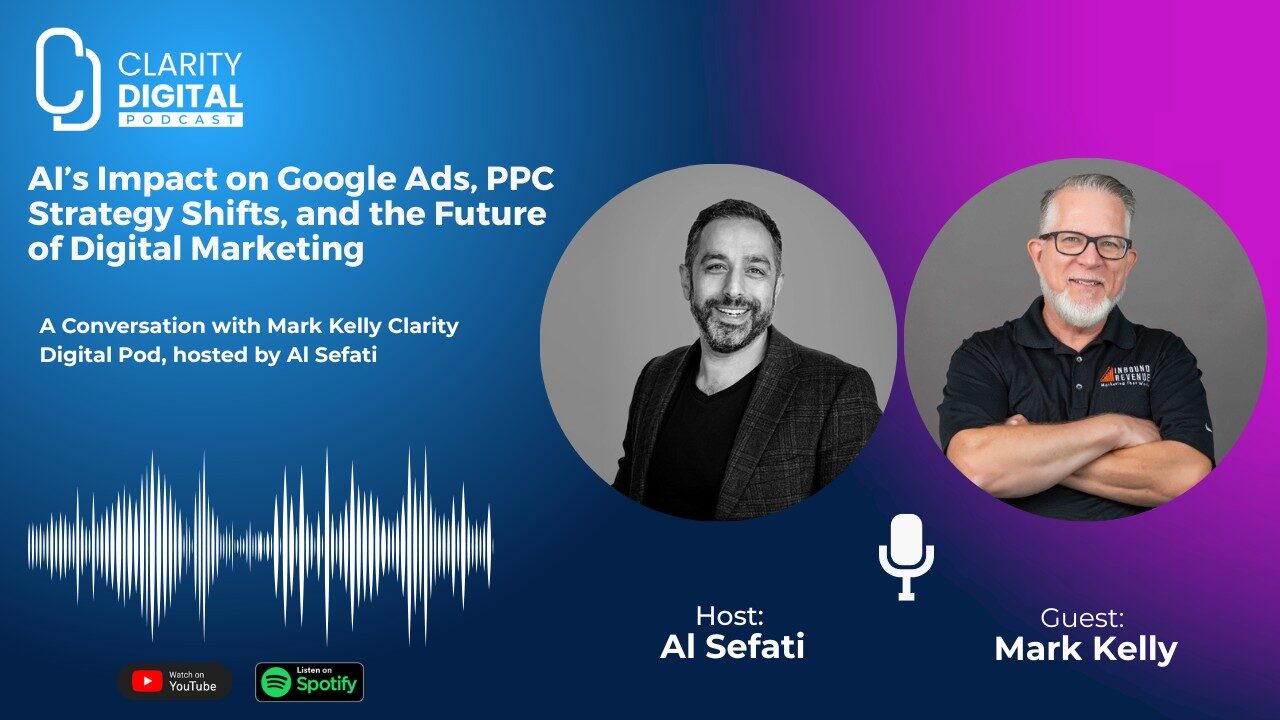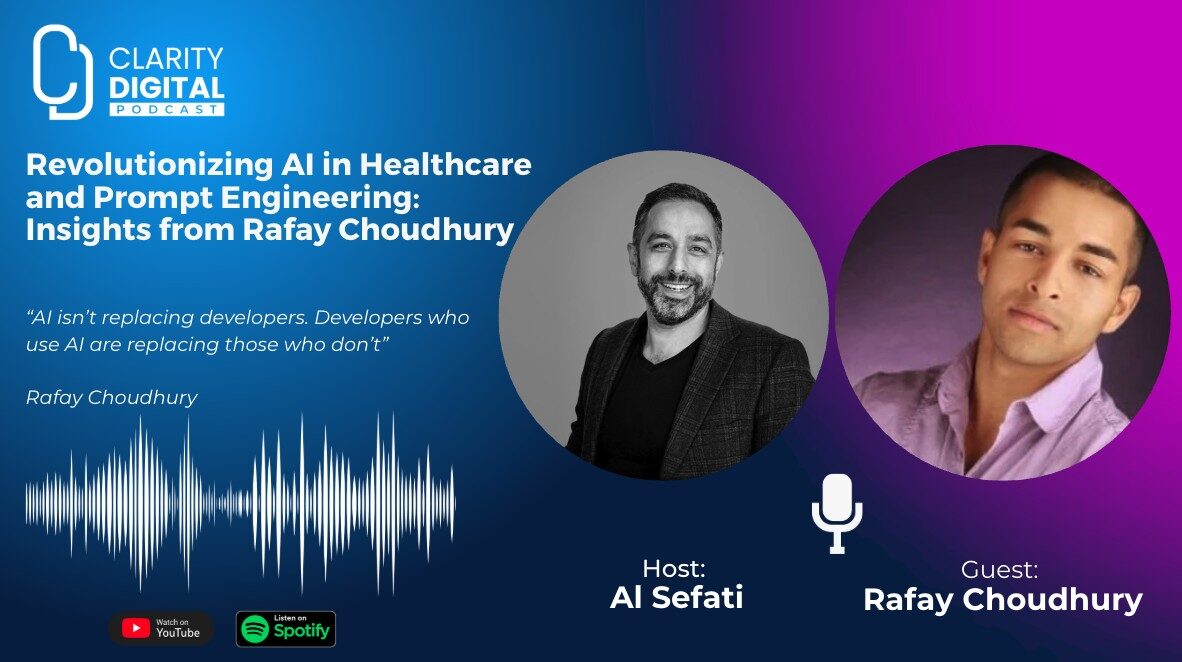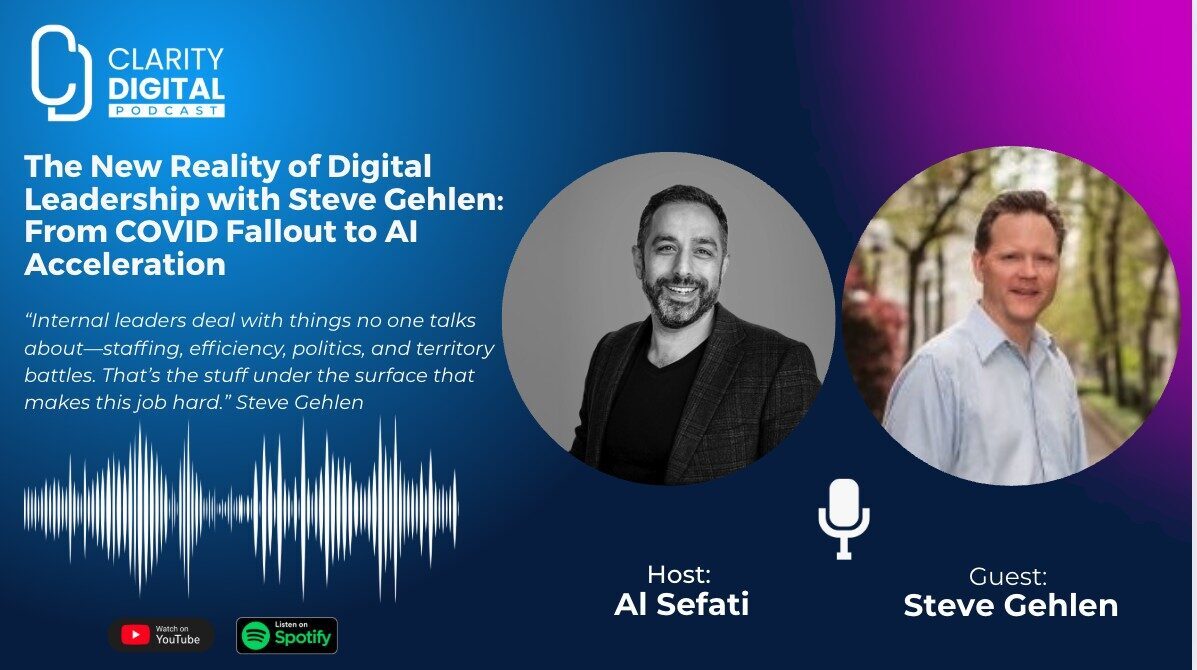Insights with Trevor Stolber
In this episode, Trevor Stolber, an SEO veteran and co-founder of VibeLogic, shared his perspective on how AI is reshaping the SEO landscape. With his wealth of experience, Trevor provided a refreshing take on the challenges and opportunities ahead. Here’s a quick rundown:
The State of SEO in a Post-AI World: What’s Changing and What’s Not
The digital marketing world has declared SEO dead more times than we can count. Yet, here we are. SEO isn’t going anywhere—it’s evolving. In a recent podcast discussion with Trevor Stolber, a seasoned SEO veteran with nearly three decades of experience, we dove deep into how AI is reshaping search, why Google might be struggling with its own algorithm, and what digital marketers should be doing now to stay ahead.
The Evolution of SEO: A 27-Year Perspective
Trevor started in SEO before Google even existed. Back then, optimizing for search meant ranking on multiple engines—now it’s a Google-dominated world, though that may be changing again. With the rise of AI and new search technologies, Google’s monopoly is being challenged, but that doesn’t mean it’s over for traditional SEO.
SEO has always been about understanding user intent and providing the best content to fulfill a need. That hasn’t changed. What has changed is how search engines interpret content, how they integrate AI into results, and how marketers need to think beyond traditional ranking factors.
Is Google Losing Control of Its Own Algorithm?
One of the more interesting topics we explored is whether Google truly understands its own search algorithm anymore.
Over the years, Google has layered algorithm updates on top of previous updates, added patches upon patches, and adjusted thousands of ranking signals. The result? A search engine that, while still powerful, might not be fully understood even by Google’s engineers. Google’s knee-jerk reactions to AI and other emerging technologies have made things even more complicated.
There’s also the issue of how Google incorporates machine learning into rankings. Many SEOs have suspected—and leaks have all but confirmed—that Google uses post-ranking quality assurance measures. This means rankings aren’t just about traditional ranking factors; they’re influenced by engagement metrics and feedback loops that Google likely doesn’t have full control over.
AI and Generative Search: Google’s New Challenge
Generative AI has changed the search landscape significantly. Google’s AI-driven search results often prioritize AI-generated summaries over traditional organic results. This is the next evolution of featured snippets and zero-click searches, except now it’s happening on steroids.
Content creators are rightly concerned—if AI is generating answers directly in search results, what happens to traffic? But Trevor pointed out a critical factor: AI still pulls from existing content. That means being part of that dataset is more crucial than ever.
One concept that’s becoming more important is information gain. Google doesn’t just want unique content; it wants content that adds something new to the conversation. If AI-generated summaries simply rehash existing information, they don’t contribute much to the user experience.
This shift means SEO needs to focus on originality, depth, and credibility—more than ever before.
Generative Engine Optimization (GEO) and the Future of SEO
With AI-generated search results, SEOs need to think beyond keyword rankings. One approach that’s gaining traction is Generative Engine Optimization (GEO). This involves optimizing content not just for traditional search algorithms, but also for AI-driven results.
Trevor and his team have been experimenting with vector alignment, which essentially helps position content in a way that makes it more likely to be included in AI-generated answers. The idea is to structure content so it aligns more closely with how AI models interpret search intent, rather than just how traditional algorithms process rankings.
Short-Form vs. Long-Form Content: What’s Winning?
There’s a long-standing debate about whether long-form content ranks better than short-form content. The truth? It depends on intent.
Trevor pointed out that while traditional SEO has favored long-form content for years, AI-driven search may be shifting that balance. Google’s AI summaries favor concise, informative responses. That means shorter, highly optimized content could start outperforming long, exhaustive guides for certain queries.
However, long-form content still dominates in competitive spaces, especially when users are looking for in-depth analysis. The key takeaway? Marketers should be creating both—highly targeted short-form content alongside authoritative long-form content.
SEO Tools and AI: What’s Actually Useful?
With AI taking center stage, many SEO tools have jumped on the bandwagon, integrating AI-driven features. But how many of them are actually useful?
Trevor recommends SEMrush (a staple in the industry), AlsoAsked (a great tool for uncovering related queries and optimizing for question-based searches), and SEOStack.io (which enhances Google Search Console data for deeper analysis).
However, he’s cautious about fully relying on AI-driven SEO tools. Many of them generate plausible-sounding strategies, but they lack true strategic depth. AI can assist in ideation and efficiency, but real SEO expertise is still needed to ensure quality and accuracy.
Google vs. AI Search: Who Wins in the Long Run?
For the first time in decades, Google’s dominance is truly being challenged. AI-powered search engines are gaining traction, and new platforms like OpenAI’s upcoming GPT-powered search could reshape how people find information. Social media platforms are also improving their internal search functions, reducing reliance on Google for certain types of queries.
However, Google still has a decade of dominance left, according to Trevor. Search habits don’t change overnight, and even with the rise of AI-driven search, Google will remain a major player—at least for the foreseeable future.
The Importance of SEO in a Multi-Channel Strategy
One of the biggest mistakes businesses make is treating SEO as their only marketing channel. SEO is powerful, but it’s not a complete marketing strategy on its own.
Paid search, social media, email marketing, and content distribution should all be working together. A strong SEO strategy feeds into other marketing efforts, helping brands capture demand across multiple channels. This is especially important now that Google’s AI-driven search is limiting visibility for traditional organic results.
Key Takeaways for SEOs in a Post-AI World
- SEO is evolving, not dying. AI-driven search results are changing how people interact with search engines, but SEO remains a fundamental part of digital marketing.
- Generative Engine Optimization (GEO) is the next frontier. Optimizing for AI-driven search requires new strategies, including vector alignment and short-form content optimization.
- Google might be struggling with its own algorithm. The complexity of search ranking factors and post-ranking quality adjustments mean even Google may not fully understand its own system.
- Long-form content still ranks, but short-form is gaining ground. AI-driven summaries and voice search are making concise, highly optimized content more important than ever.
- AI search engines are real challengers to Google. But Google isn’t going away anytime soon—it still has a decade of dominance left before any major disruption occurs.
- SEO must be part of a multi-channel marketing strategy. Businesses that rely solely on organic search will struggle. Integrating SEO with paid media, content marketing, and social media is crucial for long-term success.
SEO in a post-AI world is all about adaptation. AI-driven search results, evolving algorithms, and shifting user behaviors mean that SEO strategies need to be more flexible than ever. But at its core, SEO is still about understanding user intent and providing valuable content.
The fundamentals haven’t changed—what’s changing is how search engines process and display that information. And as long as people need to find information online, SEO will remain a crucial part of digital marketing.





